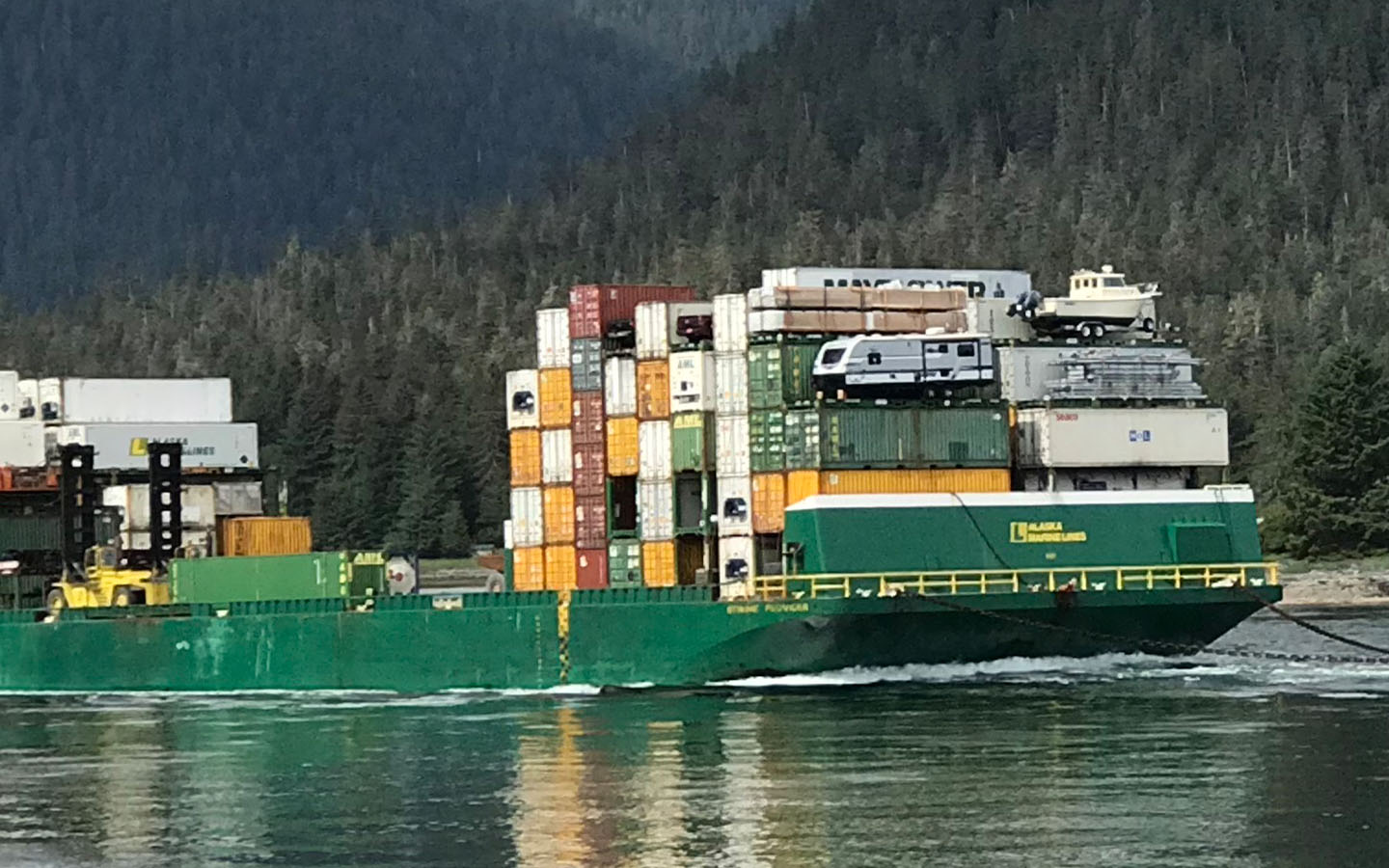The fire hazards and potential toxic runaway fire risks posed by lithium-ion batteries continue to place a heavy burden on the shipping industry.

Following Matson, Alaska Marine Lines, a subsidiary of Lynden, has become the latest shipping company to announce the suspension of electric vehicle (EV) and plug-in hybrid electric vehicle (PHEV) transport due to a significant increase in safety risks associated with such transport.
Currently, Alaska Marine Lines operates a key freight barge service that runs through Alaska and extends to Hawaii. It is not only a key link for commercial freight transportation, but also provides a necessary channel for Alaskan residents to transport goods or ship items from the “48 contiguous states”.
In mid-August, Alaska Marine Lines issued a statement to its customers saying: “although we have previously shipped EVs and PHEVs, the increased complexity and fire risk associated with shipping large lithium-ion batteries on vessels at sea has caused us to re-evaluate how to best keep our employees and equipment safe. While issues with lithium-ion batteries are infrequent, the inability to extinguish or contain this type of fire, especially while at sea, can lead to catastrophic results. We will continue to reassess our ability to safely ship these vehicles as industry standards and safety procedures improve.”
Alaska Marine Lines’ decision is effective immediately in central and western Alaska, as well as Hawaii. Transport of these vehicles will continue in Southeast Alaska over the coming weeks, with the decision taking effect September 1. This decision will not affect the transportation services for other types of hybrid vehicles, small electric recreational vehicles, electric bicycles, and all-terrain vehicles (ATVs).
The company stated that as industry standards and safety procedures continue to improve, it will continue to reassess the feasibility of safely transporting electric vehicles and PHEVs.
Alaska Public Media pointed out that due to the increasing popularity of electric vehicles in southeastern Alaska, Alaska Marine Lines’ restrictions will have a serious impact on the region.
The Alaska Marine Highway System and its ferries, operated by the Alaska government, will continue to carry electric vehicles with restrictions. Each ferry will be limited to two electric vehicles per voyage, and special precautions have been taken on the ferry. The two electric vehicles will have a larger storage area and will be equipped with two special fire blankets to extinguish electric vehicle battery fires if necessary.
Recently, another US shipping company, Matson, also announced that it would suspend the transport of battery-powered electric vehicles or PHEVs, while traditional car transport services would not be affected. Matson Navigation stated that although measures had been taken to prevent possible fires, its ships traveling from California to Hawaii and Guam would no longer transport electric vehicles.
In addition, as early as 2023, Havila, a shipping company operating car transport services on coastal routes in Norway, announced that it would ban the transport of electric vehicles and hydrogen-powered ships on its vessels.
This year, the shipping industry has experienced a serious maritime accident involving electric vehicles. The PCTC “Morning Midas”, carrying 3,000 cars, caught fire and eventually sank, causing huge losses.
According to reports at the time, the “Morning Midas” caught fire approximately 300 miles south of Adak, Alaska, with smoke first detected in the deck area carrying electric vehicles. The fire suppression system onboard was unable to contain the blaze. Over 20 days after the incident, the “Morning Midas” ultimately sank at a depth of approximately 5,000 meters, 360 nautical miles from land, at 4:35 PM local time on June 23 (UTC-9).


